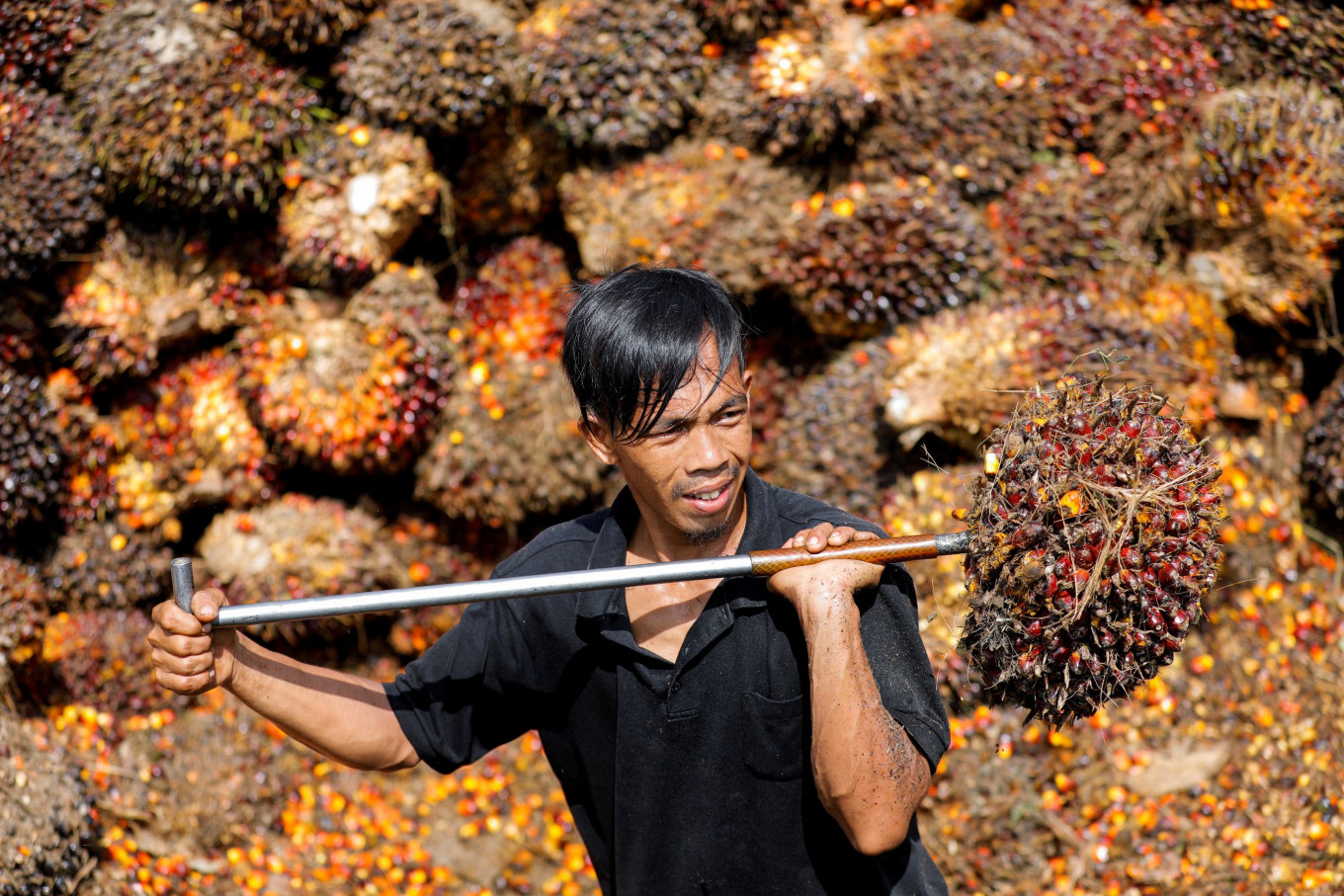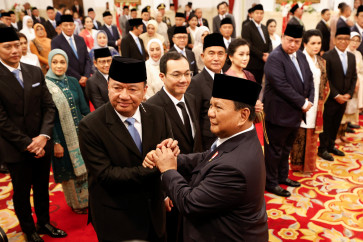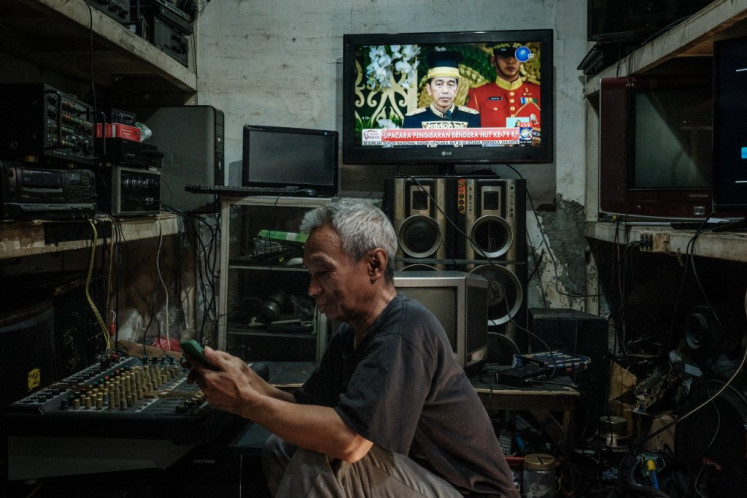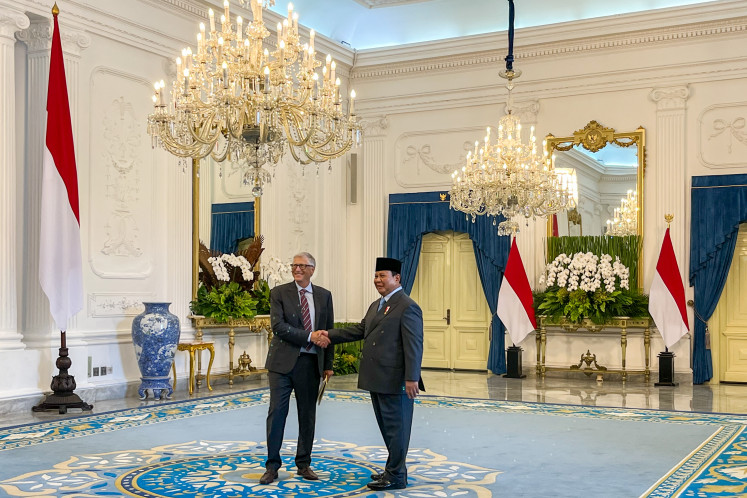Demand to shield palm oil from EU deforestation law
Regulation may reduce import demand, but surplus will be absorbed by other buyers: Analyst.
Change text size
Gift Premium Articles
to Anyone

T
he European Union's deforestation law is unlikely to have a meaningful impact on demand for Southeast Asian palm oil as the surplus is shrinking amid rising consumption from developing countries, a leading industry analyst said on Monday.
The EU in December agreed a deforestation law that requires companies to produce a due diligence statement and provide "verifiable" information that commodities, including oil palm, were not grown on land deforested after 2020, or risk hefty fines.
The regulation has been welcomed by environmentalists as an important step to protect forests, but palm oil producers have accused the EU of blocking market access for the edible oil.
James Fry, chairman of commodities consultancy LMC International, told Reuters the regulation could reduce import demand in the EU, but the surplus would be absorbed by buyers such as India, Bangladesh, Pakistan and African countries.
"There is not enough palm to meet all the markets, and India would be very happy if the EU's deforestation law meant there was more palm oil for India," Fry said in an interview.
The EU is the world's third largest palm oil importer with a shrinking market of less than 10 percent, while Asian countries such as India and China account for more than 40 percent of global imports.
Output of the tropical oil has been rising in top producer Indonesia, but the surplus has been largely absorbed locally because of its ambitious biodiesel mandate, he said.
Indonesia in January launched its biodiesel program with a mandatory 35 percent palm oil content, expanding from the previous 30 percent, aimed at reducing reliance on imported diesel and propping up demand.
In the second biggest producer Malaysia, where production last year was 18.45 million tonnes, Fry said output had started to plateau because replanting of unproductive oil palm trees had slowed down.
"In Malaysia, the challenge will be whether production will exceed over 20 million tonnes," he said.
Palm oil exports from the top two producing countries peaked in 2019 and are unlikely to get close to that again, Fry said.
Stable export policies
Meanwhile in Asia, the Asian Palm Oil Alliance (APOP), a body of palm oil buyers, want producing countries to make sure they have stable export policies after changes last year caused volatility in the trading of the tropical oil, the head of the group said.
India, Pakistan, Bangladesh, Nepal and Sri Lanka are currently members of the APOP and the alliance wants to add more buyers, Atul Chaturvedi, the APOP chairman, said at the annual meeting of member countries in Kuala Lumpur late on Monday.
Importing countries have built refineries to process crude palm oil, but producers are imposing higher export duties on crude palm oil than for refined and making the buying of refined palm oil cheaper than the crude grade, Chaturvedi said.
"The higher duty on crude palm oil is keeping refineries idle in importing countries. Producers need to think about this duty structure, which is hurting buyers," he said.
Dorab Mistry, the director of Indian consumer goods company Godrej International, told the gathering that key producers Indonesia and Malaysia need to realize that Asian countries are their most trusted buyers and that they make purchases without creating trouble for the industry.
The sudden change in export polices such as ban on the exports imposed by Indonesia last year not only disrupts supply chains in importing countries, but also hurts producers and they should think about buyers while making sudden changes, Mistry said.
Indonesia, the world's biggest exporter of palm oil, last year surprised buyers by banning palm oil exports, which forced buyers to secure supplies from rival Malaysia at a record high price and look for alternatives such as soy oil and sun oil.
Furthermore, major producers tend to respond more to demands from buyers in Europe rather than pay attention to the needs of Asian purchasers, said Ajay Jhunjhunwala, president of the Solvent Extractors' Association of India.
“The European Union accounts for less than 9 percent of the global palm oil imports. Asian buyers account for around 40 percent, but producers try to comply with EU's demands and ignore Asian buyers," he said.









